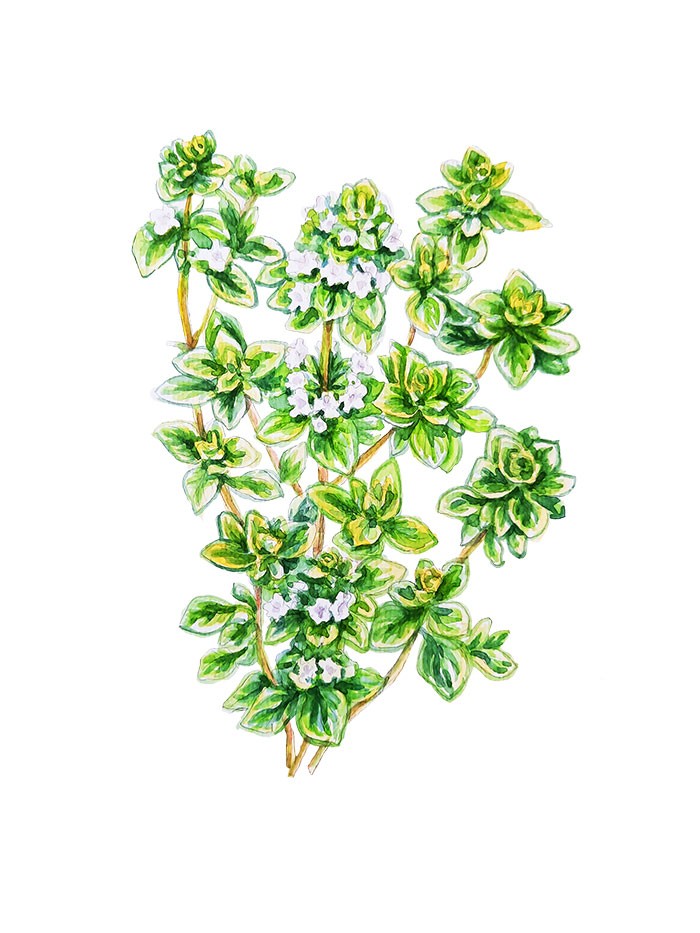
Oregano (Origanum vulgare) is an herbaceous perennial plant from the mint family. The flowers are small, pinkish-purple or red and gather in beautifully clustered inflorescences.
Oregano is a potent herb with unique healing properties and a very ancient medicinal history. It found its place in Greek legends where it was called "the joy of the mountain". One of these legends is associated with the power of Zeus, it is said that he owes all the power to oregano. When he was a baby, Zeus was raised by a nymph on the deserted island of Crete. The island of Crete was covered with oregano, the nymph fed Zeus the milk of a goat named Amalthea, who ate oregano. Legend has it that Baby Zeus grew at an hourly rate and thanks to this herb became so strong and powerful. Oregano is considered an herb that possesses magical powers, and perhaps because of this legend, oregano is known as the herb of magic.
The ancient Greeks were very familiar with the unique properties and numerous culinary uses of oregano. When oregano grows on a grave, it means that the dead are happy. The plant is used for weddings in Greece and Rome. The warm, soothing and fragrant taste and the special aromatic balsamic smell of oregano make it a popular spice and medicinal herb in traditional Mediterranean cuisine.
Oregano contains essential oil, tannins, beta-caryophyllin (the active ingredient in oregano identified by British scientists), ascorbic acid, and others. Oregano tea is recommended for insomnia, chronic gastritis, and liver diseases. Oregano helps with expectoration and relieves cough. It relieves stomach and bowel cramps and gas, and it improves digestion. The herb has a high antimicrobial effect due to the high carvacol content and soothes the nervous system.
Oregano has been used for the treatment of throat and respiratory diseases, gynecological diseases and as a sedative since ancient times.